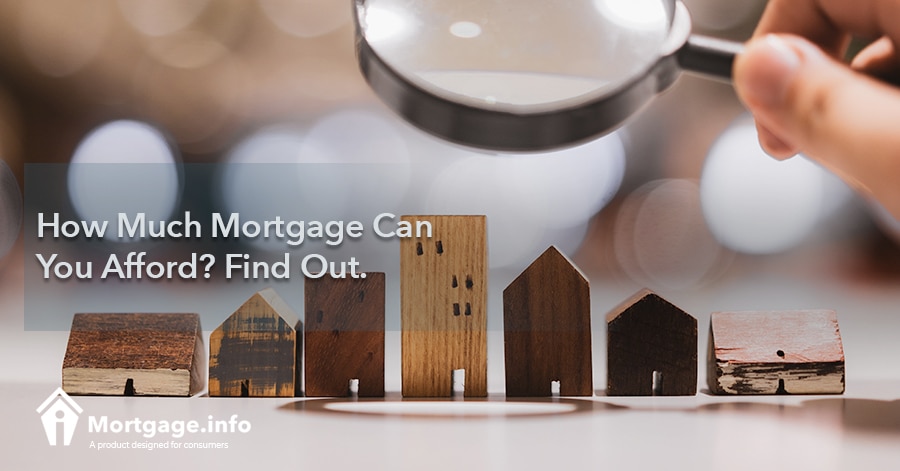
Your mortgage affordability will look much different on paper from what you can comfortably afford in real life. Do not make the mistake of falling for the loan amount a lender says you can afford. Work the numbers and know exactly what you can afford without putting your daily expenses at risk. The last thing you want to do is default on your mortgage as your credit takes a large hit and you could lose your home. Here are a few ways to determine how much you can afford to make your mortgage process as seamless as possible.
The Factors that Matter
Mortgage affordability depends on a variety of factors, such as the total income between you and the co-borrower; the total amount of debts from all borrowers; and the amount of money you put down on the home.
Debt Ratio Requirements
The lender will look at your household income and debts to determine your debt-to-income ratio. This is one of the major factors helping you determine your ability to afford a mortgage. The maximum debt ratio for any loan, regardless of the program, is 43% if the lender wants to meet the Qualified Mortgage Guidelines. Lenders that keep the loans on their own books might have a little leeway with the debt ratio, but 43% is a good maximum to keep in mind.
In order to determine your debt ratio, you simply calculate your total income and compare it to your total monthly debts. The debts to include are any monthly recurring debts that report on your credit report, including:
- Credit cards (minimum payment)
- Student loans
- Auto loans
- Personal loans
Things like utility payments and cellphone bills typically do not get included in the debt ratio; however, you should keep these costs in mind.
Once you know your debt ratio, you can add in a potential mortgage payment. There are many mortgage calculators online you can use to figure out how much a mortgage might cost you. All that you need to know is the general price you wish to pay for a home and the estimated amount of taxes and insurance you will have to pay.
The total debt ratio is then the total of the recurring monthly debts along with the principal, interest, taxes, and insurance on the new mortgage.
The Amount of Money you Save
Savings plays an important role in your mortgage affordability too. Two ways you can use your savings are –as a down payment or as reserves to qualify for the loan. When you consider your affordability, however, you should work the loan both ways to see which provides you with the most affordable payments.
When you put money down on a home, you effectively decrease your mortgage payment. Even if you do not have the traditional 20 percent down payment, you can lower the amount you need to borrow. Keep in mind, however, if you take a conventional loan and you put down less than 20 percent, you will have to add private mortgage insurance to your mortgage costs. This should figure into your affordability to make sure you really understand the full implications of your loan.
If you choose to put only a portion of the money you saved down on the home and keep the rest for reserves, you might have an easier time qualifying for the loan. You should understand, however, that the higher loan amount means an increased loan payment. Having the reserves to back you up helps in an emergency, but you should not rely on them for affordability. You want to be able to easily afford your mortgage payment without feeling as if you have to stretch your income.
Putting Mortgage Affordability on Paper
Once you know what you qualify to receive based on your down payment and debt ratio, you should put it all down on paper. Write down your potential principal, interest, taxes, and insurance alongside your regular recurring monthly payments. Compare this total to the money you bring home every month. How much is left? Do you have enough for daily living expenses? Are you saving any money every month? These questions will help you make the right decision for your mortgage.
Mortgage affordability is a complicated process because what the lender says you qualify to receive might be more than you truly can afford. Make sure you work the numbers yourself and truly grasp what you will owe each month. The mortgage is one of the largest investments you will make in your lifetime, so making sure you make the right decision is crucial for success.
